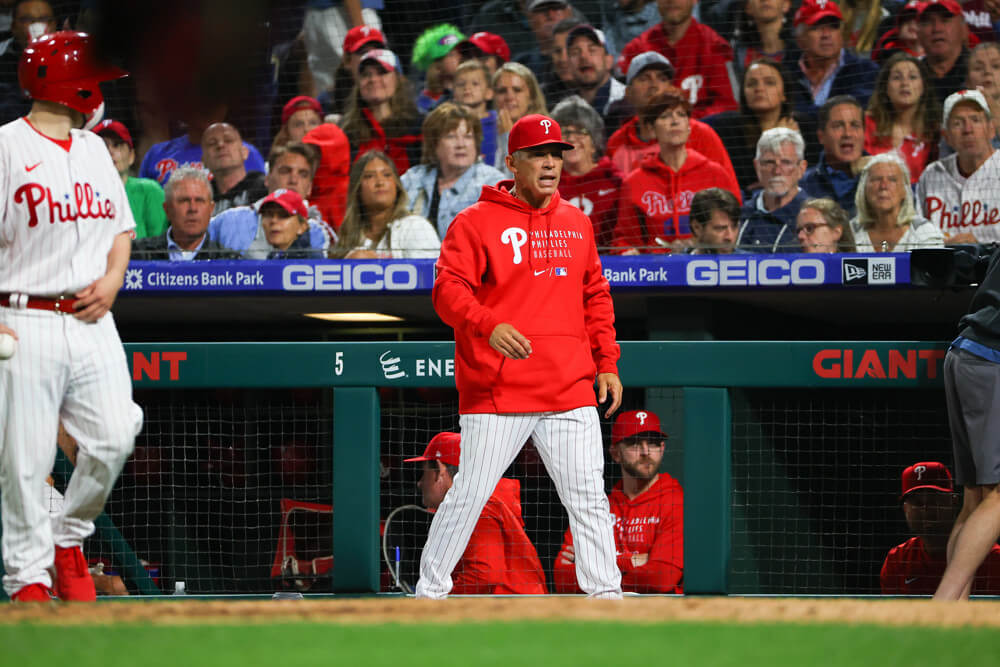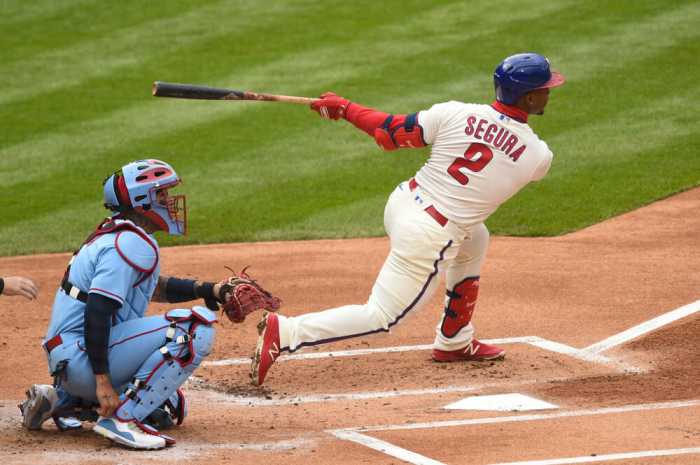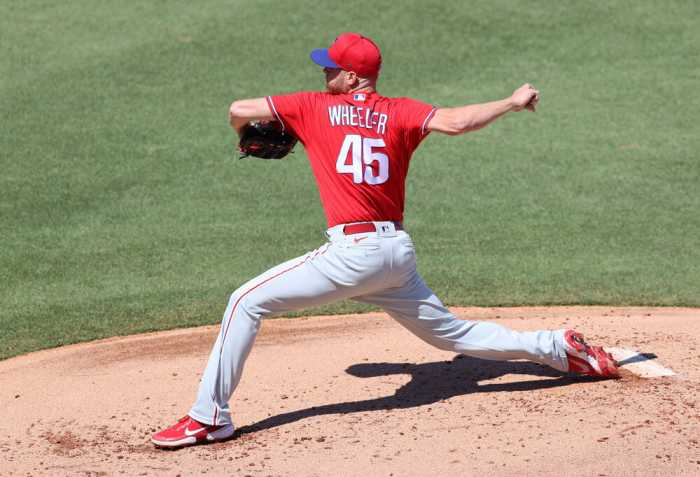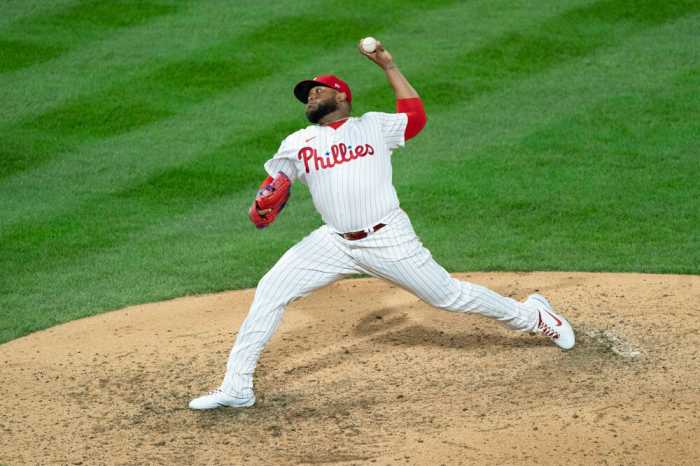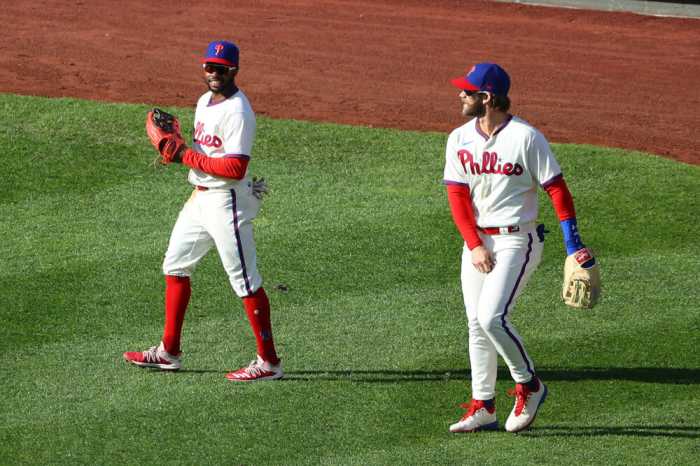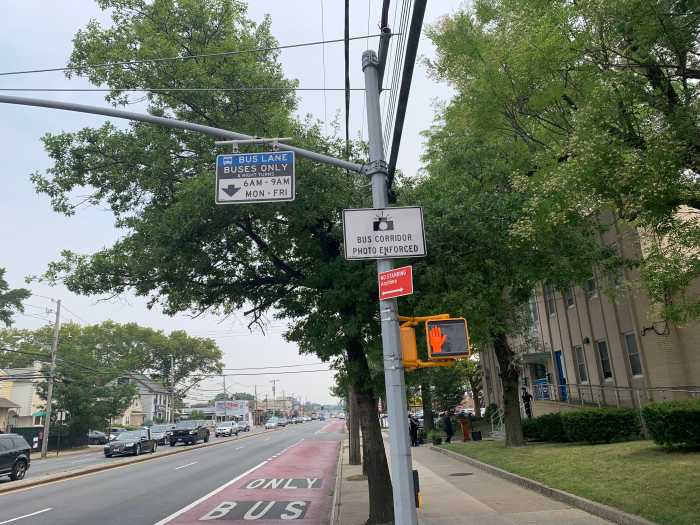Only a half inning into last night’s game between the Phillies and the Nationals, Major League Baseball’s new foreign substance policy made its presence known.
Major League Baseball’s new policy went into effect on Monday, prohibiting all foreign substances such as spider tack, pine tar, and even sunscreen, from being used by pitchers to manipulate the baseball. Under the new policy, players are only allowed to use rosin to improve their grip. Any player that has been found in violation of this policy will be subject to a 10-game suspension during which the team cannot replace them on the roster.
The use of such substances is meant to allow pitchers to have a better, more consistent grip of the baseball. This grip not only makes the pitchers more effective on the mound, but also prevents excessively wild pitches from becoming a more common occurence. Pitchers like Tyler Glasnow have used sunscreen combined with rosin, or pine tar or spider tack for years. The most common indicator of the use of a foreign substance is an increase in a pitchers’ spin rate.
What Happened Last Night
Zack Wheeler, after having allowed two runs in the top of the first, was searched for any foreign substance such as spider tack, pine tar, or sunscreen and rosin. The search came back negative with Wheeler in the clear. The decision to search Wheeler was a strange one, but by far not the most eventful search of the night.
In the bottom of the fourth, Nationals’ ace Max Scherzer struck out Alec Bohm with a runner on and no outs on the inning. The strikeout (Bohm’s second of three on the day) came on a 95.6 MPH four-seam fastball with a spin rate of 2289 rotations per minute (RPM). Scherzer’s four-seamer, for perspective, has averaged an RPM of 2481 this year.
Then Joe Girardi asked the umpires to check Scherzer in the middle of the inning.
Scherzer was not happy about the search, throwing his hat and glove on the ground as he seemingly began to undress himself. The search, unsurprisingly, came up negative. Three batters later, the inning ended on a foul out from Travis Jankowski. As Scherzer walked off the field, he glared at Girardi in the dugout, showing his displeasure in the search. Giradi took the bait, coming out of the dugout to call back to Scherzer. After Girardi yelled at Scherzer, bidding him to come and fight, he was ejected from the ballgame.
The Real Issue at Hand
While last night’s festivities stoked the fire that is the Phillies-Nationals rivalry, there is a larger issue at work. Major League Baseball‘s decision is just the most recent of many that are not in the best interest of the game of baseball.
Doctoring the Baseball
Per the MLB, doctoring the baseball is defined as:
No player is permitted to intentionally damage, deface or discolor the baseball by rubbing it with any type of foreign item or substance, including dirt or saliva.
The most important part of the rule, you ask? The first two words. No. Player.
Pitchers have manipulated the baseball for generations looking for a competitive advantage. And while one can argue whether or not players should be able to do so, that is not the argument here. The truth is, that while Major League Baseball does not want players to doctor the baseball, they themselves do it all of the time.
Heading into the 2021 season, Major League Baseball deadened the baseball in an effort to reduce offense output this season. The league had done the exact opposite during the 2020 season, juicing the baseball to make it easier to hit for longer distances.
Whether or not you want to believe Pete Alonso’s conspiracy theory that Major League Baseball is intentionally manipulating the ball to the detriment of the upcoming free agent class, it is clear that the baseball changes yearly. The truth is, regardless of the reasoning, Major League Baseball wants to be the sole manipulator of the baseball while pitchers are left out to dry.
Upcoming Collective Bargaining Agreement
On December 1st, the current Collective Bargaining Agreement between Major League Baseball and the Major League Baseball Players Association expires. On the docket for the players heading into negotiations are the decreasing average salaries across the league (with only the elite getting paid), the unjust care minor league players endure, and changes to free agency and service time manipulation.
But why does this matter in regards to the foreign substance policy? Simple. Major League Baseball needed to add another bartering chip to their policy. The reaction to the new policy has been resoundingly negative, so Major League Baseball will likely offer to tone back the rule in exchange for further monetary concessions from the players. The same thing will take place with the designated hitter coming to the National League.
At the end of the day, Major League Baseball is more interested in lining the pockets of the owners than in making decisions in the best interest of the game. The foreign substance policy presents injury concerns and is another thing to prolong an already long game time. The designated hitter rule will only increase run production, potentially leading to increased viewership.
The relationship between the league and the Players Association has been strained for years. Changing a rule that no one was complaining about in the MIDDLE OF THE SEASON only adds further fuel to the flame. The players and the league should be working together in a mutually beneficial effort to improve the game. Instead, the league continues to sabotage the game of baseball in the name of money, an effort that will backfire when a lockout delays the start to the 2022 season.
Photo by Rich Graessle/Icon Sportswire

